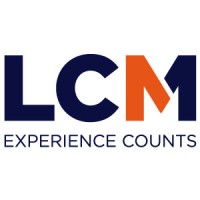Rebecca Berrebi Interviews Steven Molo at LF Dealmakers
Day two of the 7th Annual LF Dealmakers event featured a 30-min 1:1 interview session between Rebecca Berrebi, Founder and CEO of Avenue 33, and Steven Molo, Founding Partner of MoloLamken. The discussion was titled "Deep Dive: The Ultimate Decision Point - Taking a Case to Trial."
Below are some key highlights from the Q&A:
RB: Various sources report that fewer than 1% of civil cases filed in court actually go to trial. So why should funders care about trial?
SM: It's the ultimate risk. You've funded the case and you're betting on the fact that it doesn't go to trial. If it does, your investment is at risk. If you pay attention to the case the entire time and treat it as though it may go to trial, you're more likely to get a settlement that is beneficial.
RB: How do you choose jury consultants, and what does that process look like?
SM: Some people think that the venue is the most important thing, and some are particularly skilled or experienced in certain types of cases and they've developed a lot of data over time. Each of those things come into play. People do different types of research - phone surveys (I'm not sure how valuable they really are), focus groups, min-trials or mock trials (I think the concept of this is overblown). It's really about coming up with a plan for the case, understanding the venue, and if it's a big enough case hiring multiple consultants. You should be informed by-but not imprisoned by-the research.
RB: How important is it to have a lead trial lawyer with subject matter expertise?
SM: What's important is trial advocacy. Who can go before a judge and jury and lead trial information forward, rather than just pounding them over the head with information. Having expertise is important, but you don't need to be the world's foremost expert to lead a trial.
RB: How important is the selection of local counsel when your primary trial team is in one location and the trial is out of town?
SM: A lot depends on the venue. Those who have funded patent cases in Texas, you know there are the usual players that line up on either side of the case, and that's how the process works. I think you can overweight that - this fear of 'getting homered' where the local judge is in the pocket of the local lawyer. It can work the other way too - that judge might not like that lawyer! The general rule we try to follow is 'get good local counsel.' Don't worry about being overshadowed by local counsel.
I've found that most judges around the country get a kick from having a lawyer from out of town come into their courtroom. It's something interesting and it's a break from their day to day. As long as that lawyer behaves themselves, it can become a positive situation.
RB: Trials obviously include witness, and often the outcome of a case can depend on the witness' performance. What can the funder do to ensure the witness' ability to perform?
SM: Obviously with privilege issues, you don't want to be in there preparing the witness. But you can assess somebody as a communicator, and there's no reason why you can't have a conversation with the plaintiff in the case to let them know what you think about this person.
Beyond that, you can impose a structure on witness preparations with counsel. Will it be a written Q&A, if so, that Q&A might have to be produced at trial. Also where will you do the preparation? We have some courtroom-like settings, and having someone sit in a conference room is not the same thing as having them sit in the witness box. Best to bring the witness into the courtroom so they can experience it before going into trial for the first time, which is a very stressful situation. Also structuring the timeline of the preparation, so it's not done the night before. Also getting an experienced lawyer in your firm to do the mock cross examination, so there is a tension there that wouldn't otherwise be there if they're being mock-crossed by someone they know and are familiar.
Setting up the structure beforehand is something funders can address without running into privilege concerns.

















